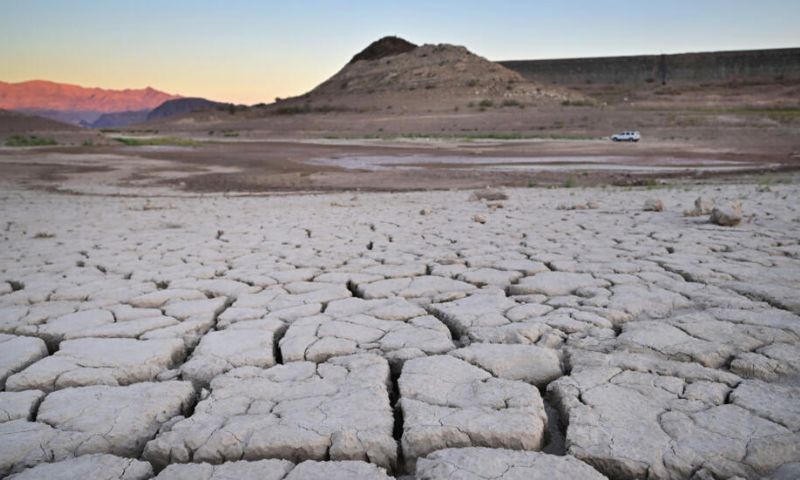PARIS: Researchers warned on Wednesday that climate change, fueled by CO2 emissions already present in the atmosphere, is projected to shrink global GDP by approximately $38 trillion, or nearly a fifth, by the year 2050, regardless of the extent to which carbon pollution is reduced.
Published in the journal Nature, the study highlights the huge economic repercussions of climate change, emphasizing the urgency of urgently curbing greenhouse gas emissions to mitigate even more severe economic consequences beyond mid-century.
According to the findings, the economic fallout from climate change could soar into tens of trillions of dollars annually by 2100 if global temperatures rise significantly beyond the two degrees Celsius target outlined in the 2015 Paris Agreement.
Earth’s average surface temperature has already surpassed the 1.2 degrees Celsius mark above pre-industrial levels, leading to intensified heatwaves, droughts, floods, and tropical storms exacerbated by rising sea levels.
The annual investment required to limit global warming to below 2 degrees Celsius, a central objective of the Paris Agreement, represents only a fraction of the damages that would be averted, researchers noted. Lead author Max Kotz from the Potsdam Institute for Climate Impact Research (PIK) stressed that adhering to the 2-degree threshold could help limit average regional income loss to 20 percent, compared to a staggering 60 percent in a high-emissions scenario.
The study underscores the disproportionate impact of climate change on vulnerable nations, particularly those in the tropics, which are expected to bear the brunt of economic losses. Senior PIK scientist Anders Levermann highlighted the challenge faced by low-income countries with limited resources to adapt to climate impacts.
While projections indicate substantial economic contractions for countries across the globe, the study also underscores potential losses for high-income nations like Germany, the United States, and France.
Critically, the researchers employed a novel approach by integrating four decades of economic and climate data from 1,600 regions, providing a comprehensive assessment of climate damages that includes previously overlooked factors such as extreme rainfall.
Despite the comprehensive methodology, experts caution that the estimated damages may still be conservative, as the study excludes certain climate-related impacts like sea-level rise, stronger tropical cyclones, and the degradation of major tropical forests.






















